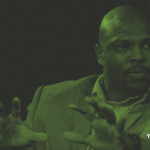See also: “God’s Spirit or Human Hysteria? My Time Among the Charismatics” (Jeff Robinson)
God called me to be a pastor while sitting under the preaching ministry of Creflo A. Dollar.
I was raised in the charismatic tradition. Christ called me to himself in a Word of Faith church in Roebuck, Alabama. There I was introduced to Jesus through the ministry of Gospel Bill, Donnie McClurkin, and renditions of Carman’s “The Champion” by puppeteers. My love for Scripture was birthed in the charismatic church. My love for the church began there. Yet my life was changed in the charismatic church primarily because of the preaching of the gospel.
Critiques of the charismatic tradition are legion, often levied by those who’ve spent little time within it. Instead of realizing the fastest-growing slice of global Christianity belongs to the Pentecostal tradition and in humility learning from it, dogged demonizing of charismatics prevails. I believe you should not critique that which you have not first understood.
Beginnings at Azusa Street

The charismatic movement arose out of the Azusa Street revivals from 1906 to 1915, led by William Seymour. At a time when segregation ruled, Azusa Street boasted multi-ethnic and intergenerational crowds, becoming an early witness to the unifying power of God. Birthed in an apostolic mission in Los Angeles, Pentecostalism grew steadily throughout the 20th century.
Early charismatics prized holiness, love for God’s Word, and expressive worship common in predominately African-American denominations. Several denominations have sprung from this soil, including the Church of God (Cleveland, Tennessee), Assemblies of God, and the Church of God in Christ. As the tradition grew, so did its children. Unfortunately, due to the rise of the prosperity gospel, segments of the modern Pentecostal/charismatic movement (MPCM) have deformed into a grotesque pastiche of their mother. Throughout the 20th century, splinter cells of Pentecostalism—including Word of Faith—sprouted across the globe, each searching for a more meaningful experience of God.
The meteoric rise of some MPCM churches like Hillsong and Bethel (Redding, California) have captivated a portion of Christianity, capitalizing on the desire of many Christians for passionate worship. Hillsong, Bethel, and similar churches offer an experience of God, not just a didactic understanding of him. Our charismatic brothers and sisters have captured an experience that seems to stoke affection for God, and we should pay attention.
Pietistic Influence
Charismatic worship is rooted in the radical pietism that appeared in the 17th century after Philipp Jakob Spener (1635–1705) and August Hermann Francke (1663–1727) sought to revive confessional Lutheranism. Their goal was spiritual renewal, characterized by an emotional response to the gospel, that instilled in the believer a living faith focused on neighbor love. These pietistic roots support the MPCM tree.
Modern charismatics owe their existence to the influence of this branch of Moravian pietism upon John Wesley (1703–1791). His conversion on May 24, 1738, at Aldersgate exemplified this interplay between faith and feeling; as Wesley famously testified, “I felt my heart strangely warmed.”
Wesley’s conversion was certainly pietistic: spiritual renewal characterized by an emotional response. Modern charismatics stand in a long line of Christians seeking to infuse worship with expressive affections. My own affections for Jesus have been stirred, and millions of believers have been edified, by the preaching and endeavors of charismatic churches.
Personal Reformation
As a sophomore in college I was discipled by a Reformed African-American man who challenged me to study Scripture beyond mining it for trite clichés. He graciously and faithfully challenged my unbiblical thinking. Our church boasted a cohort of young African-American men, Reformed in their thinking, who welcomed me into their community.
After a period of prayerful wrestling, a new world of freedom and hope was opened to me. An important question arose at the intersection of two very different worlds: Can doctrine and mystery coexist?
Mix of Meat and Bones
While some aspects of the charismatic movement are commendable, there are also glaring concerns. When I was unable to find a church home during college, my father told me sometimes picking the right church is like eating deep fried catfish. You eat the meat and spit out the bones.
And there is both meat and bones in contemporary charismatic circles. I offer three categories of each.
The Meat
1. Joy.
Whereas quiet contemplation is the modus operandi for worship in many contexts, MPCM churches offer congregants a venue for joyful and enthusiastic praise. Their gatherings typically greet the worshiper with hipster digs, intergenerational representation, and an atmosphere that seeks to foster freedom and joy.
Though the spiritual life of the believer is fraught with suffering and hardship, joy is a biblical command (Matt. 5:12; Phil. 4:4). Believers are commanded to rejoice in all things (1 Thess. 5:16), with joy being a Christian’s distinguishing mark (James 1:2). Indeed, joy’s objective source enables the believer to enjoy and rejoice in communion with God no matter the season.
2. Emphasis on the Holy Spirit.
Mainstream evangelicals often speak of the Holy Spirit in hushed tones. We subtly fear overemphasizing the person and work of the Holy Spirit.
Yes, there have been gross misrepresentations of the Spirit’s activity, but this failure shouldn’t prompt churches to skip Scripture’s teaching on the Spirit. Trinitarian implications in creation, redemption, and biblical inspiration abound. Moreover, progressive sanctification, daily empowerment to believe, and the prerogative of the Spirit to move where, when, and how he pleases are themes Reformed Christians should celebrate and learn from our MPCM friends.
3. Wonder and awe.
Charismatics have sought to recover the mystery of Christianity. Whereas the Reformers were unprecedented taxonomists—necessarily so—and pietists contributed essential rigor to the spiritual disciplines, our charismatic friends offer the church the safe haven of mystery, engendering wonder of God in the faithful.
Christians in the charismatic tradition believe God can do anything—and they expect him to. With each grand act of God comes an inability to render his works common. We discover there, in the uncommonness of God, the admiration, beauty, and inexplicable awe of the Godhead.
The Bones
1. Primacy of the Holy Spirit.
As Jesus prepared his disciples for his departure, he promised to send a helper who would empower and instruct them in his absence. He describes the helper’s objective with four simple and powerful words: “He will glorify me” (John 16:14).
To prize the Spirit at the expense of a strong Christology makes too much of the Spirit and too little of Christ. Such overemphasis places the charismatic tradition in danger of a neo-Montanism that leaves adherents enthralled by pneumatological phenomenon yet underwhelmed by the person and work of Christ.
Where the Holy Spirit is present, Jesus Christ is magnified.
2. Impotent theology of suffering.
As a child, guilt was always a close companion. I prayed that my great aunt would recover from an illness, but she died. I once prayed to no longer be teased because of my weight, but the harassment persisted. On Sundays I would listen intently to the words of my pastor, praying for absolution since my weak faith was responsible for both my aunt’s death and also my weight problem. I hung on the edge of my seat only to discover that I lacked faith or had prayed incorrectly.
While our charismatic friends encourage us to wonder at God and expect miracles, many lack a robust theology of suffering that accounts for the seeming silence of God in response to desperate pleas for help. Suffering is guaranteed this side of heaven. An impotent theology of suffering stems from an over-realized eschatology—the idea that heaven can been brought to earth now. It ignores the daily struggle necessary to know Jesus and to share in his sufferings (Phil. 3:10). Reprimanding believers for failed prayers implicitly promotes a man-centered view of faith.
Rather than believing the Lord gives and takes away (Job 1:21) or that all things work together for the good of those who love God (Rom. 8:28), some are led to believe their petitions aren’t effective because they themselves are defective. A biblical response to suffering, then, showcases the sovereignty of God and the faith he gives in the midst of woe. This response brings glory to the Father instead of ourselves. Further, suffering helps wean us off inferior pleasures and conforms us to the image of Christ—a transformation that will be fully realized only when he returns (1 John 3:2).
3. Overemphasis on experience, underemphasis on doctrine.
Some charismatics see deliverance from illness or poverty as normative for every believer. All you need to do is spout the right formula, muster the right faith, and God will do the rest. But this approach fails to see life through a biblical lens, which accounts for the importance of experience as interpreted by Scripture alone.
A common misunderstanding within the charismatic movement involves viewing subjective experience as most important in the Christian life. Prizing experience over Scripture results in the abhorrence of doctrine or theological thinking. This line of thought is exemplified in statements like “Just give me Jesus,” “seminary equals cemetery,” or “I don’t need a book to tell me how to love God.”
While such sentiments may seem innocuous, and there is biblical precedent for mighty works from “uneducated common men” (Acts 4:13), Peter and John had received the most intensive course in Christology the world had ever known. Both sat at the feet of the Word of God incarnate and saw the world through his eyes.
To love God with heart, soul, mind, and strength necessitates loving him through Scripture in its fullness, not through the partial reality of a particular experience.
Eternal Friends
Doctrine and mystery are not mutually exclusive. Movements such as Sovereign Grace Ministries and New Frontiers seek to hold together a Reformed worldview with the mystery of God’s activity among his people.
I owe much of my ministry to William Seymour and the Azusa Street revivals. I also owe much of my ministry to men of the likes of John Calvin, Jonathan Edwards, and Lemuel Haynes—and I imagine these men sit at the table of Jesus Christ as friends.
Is there enough evidence for us to believe the Gospels?
 In an age of faith deconstruction and skepticism about the Bible’s authority, it’s common to hear claims that the Gospels are unreliable propaganda. And if the Gospels are shown to be historically unreliable, the whole foundation of Christianity begins to crumble.
In an age of faith deconstruction and skepticism about the Bible’s authority, it’s common to hear claims that the Gospels are unreliable propaganda. And if the Gospels are shown to be historically unreliable, the whole foundation of Christianity begins to crumble.



































